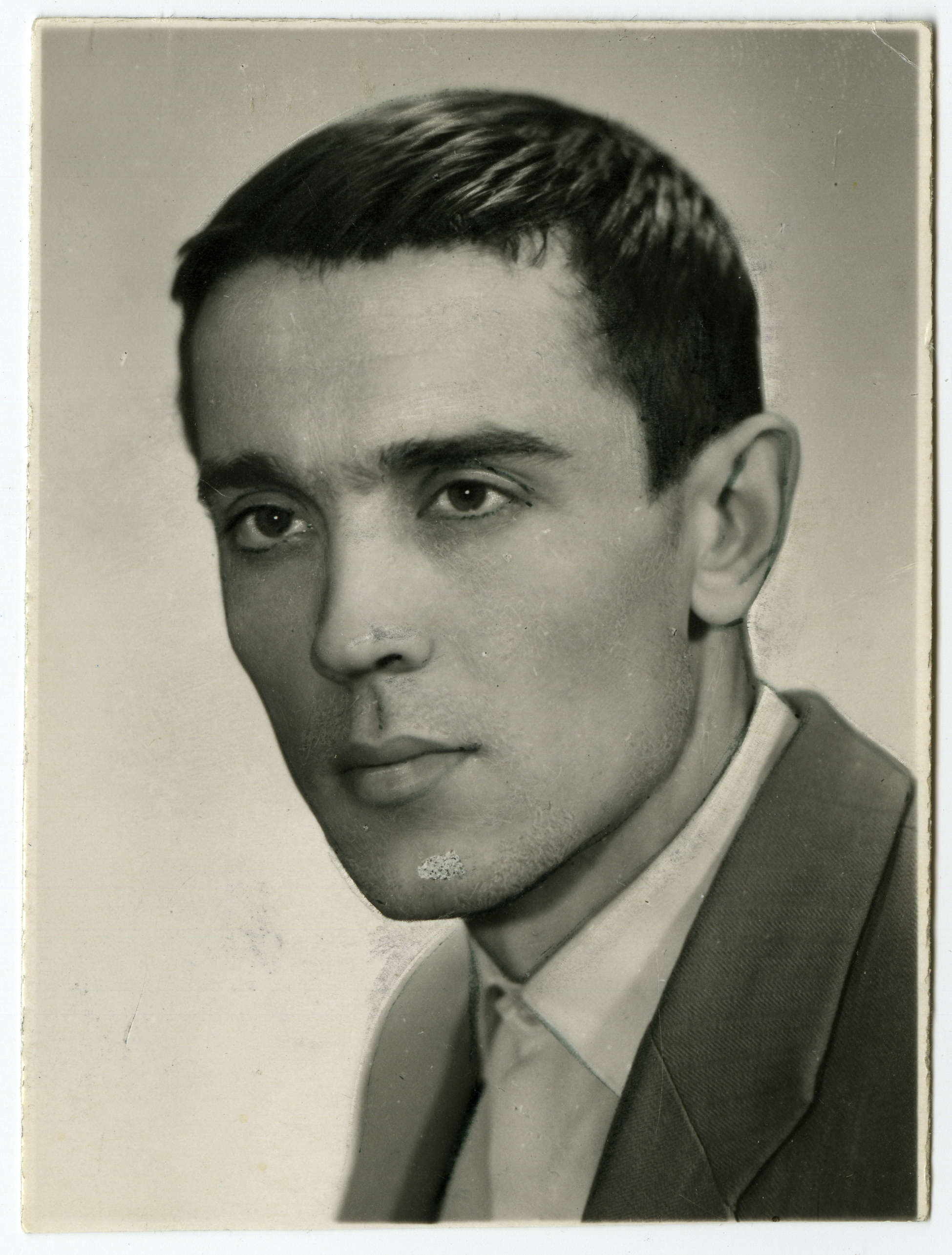
Rudolf Rimmel
Rudolf Rimmel (27. VII 1937 – 6. IX 2003) was a poet and publicist. He has remained in the minds of readers for his socially sensitive, rebelliously romantic satire. Rimmel’s combative nature gave his poetry a publicistic and sometimes declarative colouring. As the literary editor of the youth journal Noorus (1976-1995) he stimulated many disciples into literary activity, a considerable number of whom went on to become professional writers.
Rimmel was born in the Kazakh SSR, the son of an Estonian farm labourer. His father was arrested in 1937 and died in a prison camp in Russia; his mother died when the boy was seven. Brought up by his aunt, Rudolf Rimmel arrived in Estonia in 1946. He attended Estonian- and Russian-language schools alternately, and in 1956 completed number 3 (Russian) secondary school in Viljandi. Rimmel gained his higher education in the faculty of law at Tartu State University. From 1960 to 1963 he worked in Tallinn as a member of Soviet police force, and thereafter as a journalist. From 1996 Rudolf Rimmel was registered as visually impaired. In protest against Estonia’s entry into the European Union he committed suicide on 6 September 2003.
Rimmel’s first poetry collection, Hommik (‘Morning’), appeared in 1963. Wider attention came with his long poem Sfinks sinilillega (‘Sphinx with Liverwort’, 1969). Besides the socially alert and combative tone, in the collections Ohvrikivi (‘Sacrificial Stone’, 1972) and Haldjasaar (‘Fairy Island’, 1974), motifs of the love lyric also appeared. In the tense period of political changes in the late eighties and early nineties the temper of his poetry again became sharper. His long poem Maardla (‘Mineral Deposit’), which he wrote in 1968-1969, did not get permission to be published, on ideological grounds, and was published only in 1989.
Rimmel renewed the Estonian tradition of the long poem and also wrote epigrams and couplets (the collection Usutunnistus, ‘Confession of Faith’, 1990). Two selections of his publicistic writings have appeared.
Rimmel translated a great deal of poetry from Russian. His own poems have been translated into many foreign languages.
L. P. (Translated by C. M.)
Books in Estonian
Poetry
Hommik: luuletusi 1958–1963. Tallinn: Eesti Riiklik Kirjastus, 1963, 68 lk.
Lüüriline miilits ja kolmteist huligaansust. Tallinn: Eesti Raamat, 1964, 76 lk.
Sõna romantikast. Tallinn: Eesti Raamat, 1967, 112 lk.
Arabeskid: värsse 1966–1967. Tallinn: Eesti Raamat, 1969, 176 lk.
Haldjas. Leipzig: Leipzigi Graafika ja Raamatukunsti Kõrgem Kool, 1969, 46 lk.
Sfinks sinilillega (poeem). Tallinn: Eesti Raamat, 1969, 104 lk.
Ööpoeem. Vaikus (poeem ja luuletused). Tallinn: Eesti Raamat, 1970, 144 lk.
Ohvrikivi. Tallinn: Eesti Raamat, 1972, 152 lk.
Haldjasaar. Tallinn: Eesti Raamat, 1974, 168 lk.
Pärast haldjasaart. Tallinn: Eesti Raamat, 1977, 252 lk.
Luigelegend: poeemid. Tallinn: Eesti Raamat, 1980, 181 lk.
Tasakaal (poeem ja luuletused). Tallinn: Eesti Raamat, 1987, 174 lk.
Maardla (poeem). Tallinn: Eesti Raamat, 1989, 110 lk.
Usutunnistus: 250 kaksikvärssi aastaist 1984–1987. Tallinn: Eesti Raamat, 1990, 286 lk.
Setu netu: lori-, lusti- ja lõõplaule aastaist 1983–1993 ajaliselt järgnevas ja muidu segases olekus. Tallinn: Olion, 1994, 138 lk.
Vabamees: 300 nelikvärssi aastaist 1966–1989. Tallinn: Eesti Raamat, 1997, 93 lk.
Iseseisvumine. Iseseisvumisaastate luulet jaanuar 1988 – august 1991. Tallinn: Eesti Raamat, 2004, 80 lk.
Current affairs
Armastus esimesest pilgust. Tallinn: Eesti Raamat, 1976, 179 lk.
Armastus teisest pilgust. Tallinn: Eesti Raamat, 1981, 134 lk.



